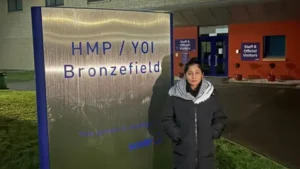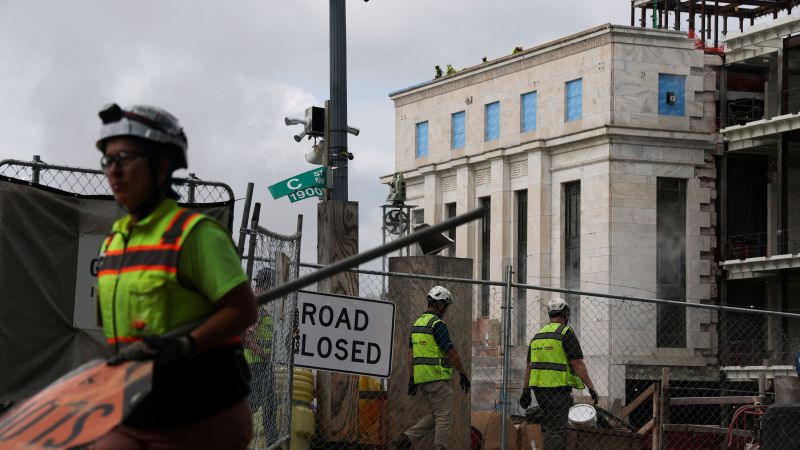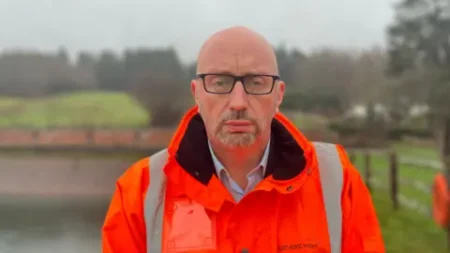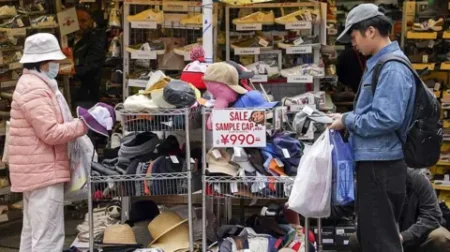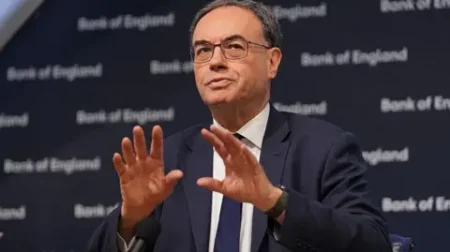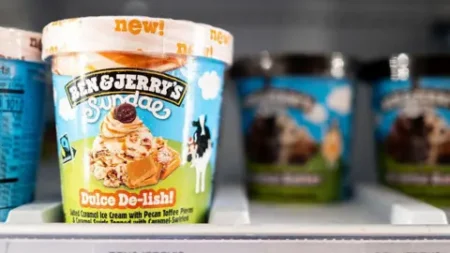In a recent revelation, President Donald Trump has intensified his criticism of Federal Reserve Chair Jerome Powell by suggesting that a $2.5 billion renovation project at the Federal Reserve may provide sufficient justification for dismissing Powell from his position. This remark marks a notable escalation in Trump’s ongoing confrontation with the Fed leader and reflects a growing tension between the White House and the central bank.
Trump’s disdain for Powell was on full display when he expressed his disapproval of the significant expenditure for the renovation project during a press interaction. “I think he’s terrible… But the one thing I didn’t see him as a guy that needed a palace to live in,” he stated, implying that the lavish spending is unjustifiable. He further dismissed Powell’s communication style, likening it to “talking to a chair,” suggesting a perceived lack of charisma or engagement from the Fed Chair.
The President elaborated on his astonishment regarding the extensive financial commitment made by Powell, stating, “But the one thing I would have never guessed is that he would be spending two and a half billion dollars to build a little extension onto the Fed.” When pressed by a reporter about whether this lavish spending constituted a fireable offense, Trump affirmed, “I think it sort of is,” indicating his readiness to support drastic measures against Powell.
This criticism is not occurring in isolation; for months, Trump has relentlessly pressured the Federal Reserve to lower interest rates, expressing frustration with Powell and the Fed’s decision-making. However, the Fed has maintained steady interest rates in 2023 despite Trump’s calls for cuts. This situation raises concerns among market analysts and observers, who worry about the potential erosion of the Federal Reserve’s independence—a foundational principle that allows the institution to make data-driven monetary policy decisions without undue political influence.
The significance of an independent central bank is supported by key players in finance, including JPMorgan Chase’s CEO Jamie Dimon. In a recent conference call, Dimon stated that “The independence of the Fed is absolutely critical, and not just for the current Fed chairman, who I respect, but for the next Fed chairman,” underscoring the need for the Fed to operate free from political pressures. He warned that interference with the Fed could yield “adverse consequences, absolutely opposite of what you might be hoping for.”
Despite applying public pressure and personal attacks against Powell, Trump has acknowledged that his tactics have not yielded the desired lower interest rates. Instead, the renovation project has emerged as a new focal point for Trump’s criticisms. In response to the mounting criticism regarding the renovations, Powell has requested that the central bank’s inspector general conduct a further review into the project, which has faced scrutiny from lawmakers, including concerns voiced during Powell’s semiannual monetary policy hearing.
The renovation itself was initially approved by the Federal Reserve Board in 2017 with an estimated cost of $1.9 billion before escalating to $2.5 billion due to unforeseen complications—including greater-than-anticipated asbestos presence and soil toxicity concerns—as outlined on the Fed’s official website. The construction, which commenced in 2021, has fueled debates about fiscal responsibility within the institution.
Over time, Trump has not hesitated to label Powell with derogatory epithets, ranging from calling him a “numbskull” to labeling him a “moron.” Powell has countered by arguing that external factors, particularly tariffs, have hindered the Fed’s ability to lower interest rates more aggressively, emphasizing the need to assess the impact of these tariffs before making policy changes. However, Trump remains adamantly opposed to this stance, asserting that rates should be much lower and advocating for them to fall below 1%.
This widening rift between the President and the Federal Reserve raises further questions about the potential ramifications for economic policy and market stability, highlighting the delicate balance that must be maintained to ensure the Fed’s integrity and authority in the landscape of monetary policy. As this situation unfolds, the implications for both Powell and the broader economic environment will be closely monitored. CNN’s John Towfighi contributed to this report, further illustrating the intense scrutiny surrounding the Federal Reserve’s operations and its leaders.


